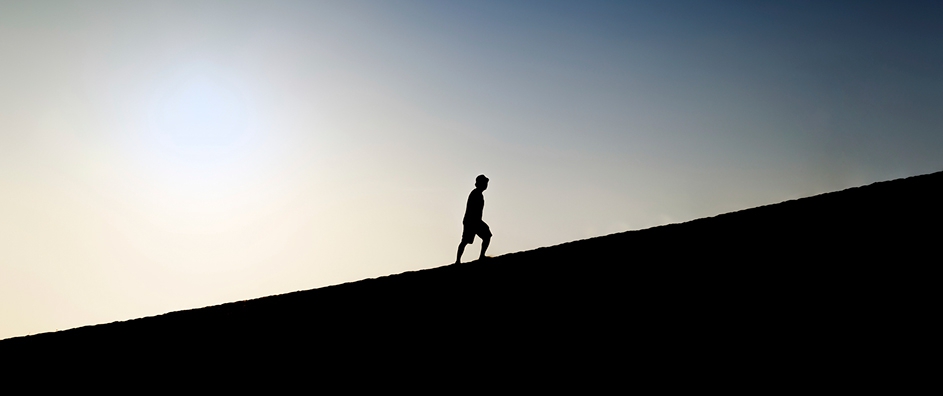The views expressed in our content reflect individual perspectives and do not represent the authoritative views of the Baha'i Faith.
Abdu’l-Baha, eldest son of Baha’u’llah, the prophet-founder of the Baha’i Faith—and Baha’u’llah’s designated successor and interpreter—wrote primarily in Persian and in Arabic. But he also spoke and wrote in Azeri Turkish —or “Azeri” for short. All of Abdu’l-Baha’s letters and tablets to Baha’is in the Caucasus and Iranian Azerbaijan were written in Azeri.
Abdu’l-Baha revealed some of the Baha’i scriptures, therefore, in the Azeri language. This is probably not familiar to most Baha’is, and so now is a good opportunity to acquaint readers—both Baha’is and those interested in the Faith—with an example of one of Abdu’l-Baha’s writings in Azeri.
What follows is a “provisional” (non-official) translation, interspersed by my brief commentaries, by way of personal interpretation.
This “Tablet” by Abdu’l-Baha, translated directly from the Azeri original, opens as follows:
My little child, My beloved! I have been talking and writing seriously since the morning. Now I want to enjoy Myself and jest a while. – Abdu’l-Baha, from an Azeri letter, provisional translation by Necati Alkan.
This letter starts off in a very personal way, with terms of endearment: “My little child, My beloved!” as though Abdu’l-Baha is writing to one of his own sons.
We do not know the age of this “little child”—nor the child’s name. All we know is that the child probably wrote and spoke in Azeri. This shows that the Baha’i Faith had already become an international religion in the early twentieth-century, when a small but vibrant Baha’i community existed in Azerbaijan, most likely where the recipient lived.
As was his custom, Abdu’l-Baha would often dictate his answers to letters through a secretary. This was the easiest and most efficient way to respond to the large volume of correspondence he received—but he would also write letters in his own hand. The international Baha’i archives have many of those letters today.
Here, after a busy morning, likely answering letters all morning long, Abdu’l-Baha devotes some time to this young Azeri, for whom Abdu’l-Baha has great affection—and, as we will see, respect.
The letter opens in a humorous vein, as Abdu’l-Baha says that he writes “in jest.” But the letter will soon take on a serious tone:
My child! Thou art young, vigorous, in the prime of thy youth; it is the season of thy spring and the time of thy blossoming. How canst thou take a step into an abyss that is circumscribed by divine tests? Beware, thou canst be beaten, abused, chased off and maybe hanged. – Ibid.
From the context, it appears that Abdu’l-Baha refers to religious persecution. In all likelihood, this boy or his family had suffered persecution as a Baha’i child living in Azerbaijan, a nation with a majority-Turkic and majority-Shia Muslim population.
There, as in other majority Muslim countries, the Baha’i Faith was not readily recognized, much less accepted. Of course, being an independent religion (with its origins in Islam), Baha’is have a distinct identity as Baha’is, and do not regard themselves as Muslims.
Abdu’l-Baha then poses these three rhetorical questions:
I wonder if this is appropriate. Is this full of good omen? Is it a brimful cup? – Ibid.
The answer is “yes” to all three questions. Although Abdu’l-Baha does not wish this young Azeri to experience unnecessary pain and undue hardship, if this comes by way of religious persecution, then there is nobility of character and purpose attached to such difficulties:
I am dumbfounded and bewildered at this, that thou hast afflicted thyself with calamity, subjected thyself to hardship and that thou performest a difficult feat. But this is much certain:
Be Husayn-like, forsake fear for another soul
and reach the realm of the Karbala of love.
Be brave! Be brave! – Ibid.
Husayn, grandson of the Prophet Muhammad, was a celebrated martyr in early Islamic history. Abdu’l-Baha is “bewildered at this, that thou hast afflicted thyself with calamity.” The young Azeri did not bring hardship upon himself, but was simply the victim of persecution for standing up for what he believed. We do not know what faithful stand this boy took, but we understand that it involved an act of bravery, which Abdu’l-Baha encourages and, by implication, respects and admires in this young man.
This young man was a living witness—which is the literal meaning of the word “martyr”—and testament to his conviction as a Baha’i.
The word “man” is used here on purpose, in order to draw attention to the fact that this young boy attained what we might call “spiritual manhood.” In other words, this Azeri “child” had matured beyond his years. By strength of character, this stalwart and resolute youth learned to withstand the hardships of standing up for what he believed.
This act of bravery is its own reward—and lasting satisfaction that one has done right:
Praised be God! Through divine love every bitterness will become sweet: the colocynth will turn to sweet honey, the fang of a snake to medicine, poison to an antidote for them that have minds to know, calamity to comfort, hardships will become blessings, cruelty will turn to fidelity and affliction to pleasure. Therefore, may the cup of divine love that thou hast drunk be pleasant and the bondage of His love that thou hast entered a blessing and endless happiness. – Ibid.
Abdu’l-Baha, knowing and appreciating that this Azeri youth has matured beyond his years, praises his strength of character and bravery. Abdu’l-Baha emphasizes that material happiness falls far short of an inner peace, tranquility, purpose and nobility that transcends pleasure and wealth—for worldly concerns are momentary and transitory.
When all is said and done, at the end of one’s life, all possessions are gone. The only “thing” you take with you is your consciousness, your unique character, and your cherished, long-term memories of what you have achieved, for time and eternity.
In this sense, the end result will be “sweet honey,” “medicine” and “comfort” and the “blessings” and even “pleasure”—culminating in “endless happiness.” This young man, in the prime of his youth, is a prime example of a Baha’i child gifted with a sterling character. Strong, resolute, mature beyond his years, Abdu’l-Baha assures him that both hardship and its attendant rewards will follow in years to come:
O Thou kind Lord! Grant that this youth may attain unto that which is the highest aspiration of the holy ones. Endow him with the wings of Thy strengthening grace—wings of detachment and divine aid—that he may soar thereby into the atmosphere of Thy tender mercy, be able to partake of Thy celestial bestowals, may become a sign of divine guidance and a standard of the Concourse on high. Thou art the Potent, the Powerful, the Seeing, the Hearing. – Abdu’l-Baha, Baha’i Prayers, p. 20.
















Comments
Sign in or create an account
Continue with Googleor